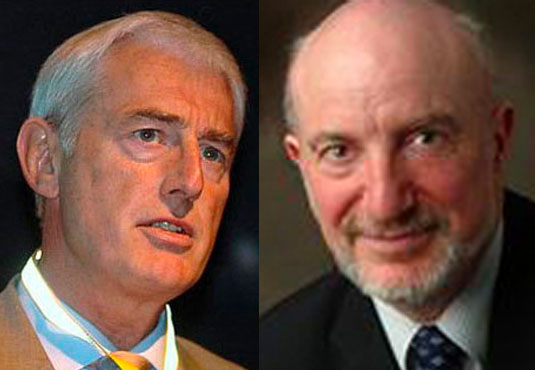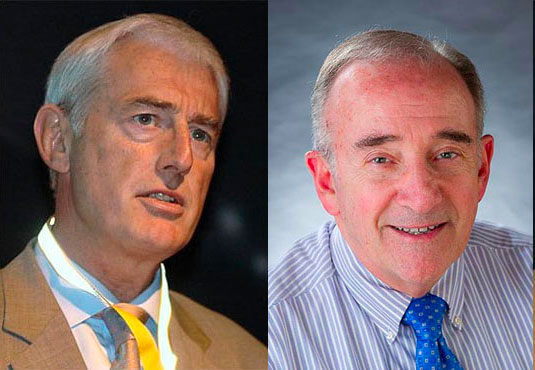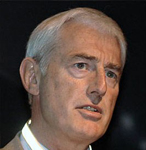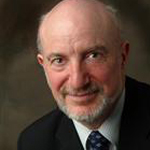From the Editors


Lerodalcibep: What does LIBerate-HeFH tell us?
The Phase 3 LIBerate-HeFH trial showed that lerodalcibep significantly reduced LDL-cholesterol (LDL-C) in patients with heterozygous familial hypercholesterolaemia (HeFH) on background stable lipid lowering therapy (LLT). Professor Derick Raal discusses the data and explains what the results mean to practising clinicians. Lerodalcibep (LIB-003) consists of…
read more »
MK-0616 – How near is an oral PCSK9i?
A pivotal Phase 3 clinical trial of the safety and efficacy of the investigational PCSK9 inhibitor, MK-0616, is expected to get underway later this year. Professors John Chapman and Chris Packard consider the evidence to-date that supports MK-0616 as potentially the first oral PCSK9 inhibitor…
read more »
Lipoprotein(a) and atrial fibrillation – Is there a link?
PCSK9 Forum Co-editors Professors John Chapman and Henry Ginsberg discuss recent data. Atrial fibrillation (AF) is the most common arrhythmia, affecting about 0.5% (circa one in 200) of the worldwide population (1). Moreover, as populations age, prevalence has increased dramatically (2). Due to the associated risk…
read more »
Reducing residual risk: Are cholesterol crystals the next target?
Professor John Chapman Sorbonne University, Pitié-Salpetrière University Hospital, National Institute for Health and Medical Research (INSERM), Paris France Cardiovascular disease is the worldwide leading cause of mortality, responsible for about one-third of all deaths (1). Much of this burden is attributable to atherosclerotic cardiovascular disease…
read more »

Should ACS patients start a PCSK9 inhibitor in hospital?
Guidelines recommend that very high-risk patients require combination lipid lowering therapy, ideally the combination of statin-ezetimibe and a PCSK9 inhibitor, to attain LDL cholesterol goal. The question is whether those with an acute coronary syndrome (ACS) should initiate a PCSK9 inhibitor with intensive statin therapy…
read more »
PCSK9 inhibition in heart failure
Prof David Hare University of Melbourne and Director of Secondary Prevention Programs at Austin Health, Melbourne, Australia Whether lowering LDL cholesterol with a PCSK9 inhibitor on top of statin therapy confers benefit – or harm – in heart failure patients was tested in this latest…
read more »
Proof-of-concept: Gene-editing for PCSK9 inhibition
Prof. John Chapman Pitié-Salpêtrière University Hospital, Sorbonne University, and National Institute for Health and Medical Research (INSERM), Paris, France. Cholesterol-rich low-density lipoprotein (LDL) is indisputably a causal factor for premature atherosclerotic cardiovascular disease (ASCVD) (1,2). Evidence from real world observational studies, however, consistently shows that…
read more »
Treating high risk cardiovascular disease: Is combination lipid lowering therapy now the rule not the exception?
In 2019 the European Society of Cardiology (ESC) and European Atherosclerosis Society (EAS) updated their guidelines for the management of dyslipidaemia to prevent atherosclerotic cardiovascular disease (ASCVD). On the basis of evidence from IMPROVE-IT with ezetimibe and the two landmark PCSK9 inhibitor trials, FOURIER with…
read more »
The LDL frontier: what else do we need to know?
Prof. Anthony Wierzbicki, Guy’s & St Thomas’ Hospitals, London UK discusses knowledge and questions about very low LDL cholesterol levels. With the advent of the PCSK9 inhibitors very low LDL cholesterol levels – less than 30 mg/dL or 0.78 mmol/L- are now a clinical reality….
read more »
SAMSON’s undoing is in the details
Prof. Robert S. Rosenson, Mount Sinai Icahn School of Medicine, New York, USA discusses results from the SAMSON trial of symptoms reported with statin treatment. Statins are indisputably the backbone of lipid lowering therapy for preventing cardiovascular events. Ensuring adherence with treatment is essential for…
read more »No age limits for treating high cholesterol?
Prof Derick Raal (University of the Witwatersrand, Johannesburg, South Africa) discusses the latest evidence on this contentious question. Atherosclerosis is a progressive disease in which LDL cholesterol is a major driver. Supported by incontrovertible evidence that LDL is causal for atherosclerotic cardiovascular disease (ASCVD)(1,2), current…
read more »
Paediatric familial hypercholesterolaemia attracts new focus
Dr Albert Wiegman, Amsterdam University Medical Center, The Netherlands discusses the latest findings that have highlighted familial hypercholesterolaemia in children. For the second time within 12 months, a study about children with familial hypercholesterolaemia (FH, inherited high cholesterol) is published in The New England Journal…
read more »
HAUSER-RCT with evolocumab: what role in children with FH?
PCSK9 Forum Editor Professor Derick Raal (University of the Witwatersrand, Johannesburg, South Africa) comments on the findings of the HASUER-RCT study and potential implications for patient care. HAUSER-RCT is an important study for the care of children and adolescents with familial hypercholesterolaemia (FH). The study…
read more »
Looking beyond LDL: PCSK9 inhibition and remnants
Professor Chris Packard (Institute of Cardiovascular and Medical Sciences, Glasgow University, UK) discusses how PCSK9 inhibition might affect remnant particles. The case for the causality of LDL cholesterol in atherosclerotic cardiovascular disease (ASCVD) is indisputable (1). Consequently, attention has now focused on the role of…
read more »
LDL cholesterol targets in stroke patients: where to?
Professor Pierre Amarenco, Bichat Hospital, University of Paris, France, makes the case for reconsideration of LDL cholesterol targets to prevent stroke, based on evidence from recent trials. Stroke is a major contributor to the global cardiovascular disease burden (1). Major modifiable risk factors including elevated…
read more »
PCSK9 inhibition, low LDL cholesterol and lack of cognitive impairment: QED?
Prof Derick Raal, University of the Witwatersrand, Johannesburg, South Africa, discusses the latest data from FOURIER regarding cognitive safety. What is the take home message for clinicians? Clinicians have long been concerned about ‘going too low’ when prescribing lipid-lowering therapy. A key issue is whether…
read more »
PCSK9 inhibition: impact on stroke
Prof Raul Santos, from the Heart Institute (InCor) University of Sao Paulo Medical School Hospital and the Hospital Israelita Albert Einstein, São Paulo, Brazil discusses the latest findings from FOURIER. Stroke brings a high burden of individual and family suffering, in addition to elevated health…
read more »
Monogenic versus polygenic familial hypercholesterolaemia: how does cardiovascular risk compare?
Professor Derick Raal, University of the Witwatersrand, Johannesburg, South Africa Familial hypercholesterolaemia (FH, inherited high cholesterol) is one of the most common inherited disorders, affecting approximately one in every 250 people or over 30 million people worldwide. FH is usually caused by pathogenic variants in…
read more »
Managing homozygous FH: what can we learn from TAUSSIG?
Professor Eric Bruckert (Hôpital Pitié Salpêtrière, Paris, France) gives his perspective on the take home messages from TAUSSIG. Patients with homozygous familial hypercholesterolaemia (FH) are extremely difficult to manage. High LDL cholesterol levels associated with this disorder put patients at very high risk of premature…
read more »
Are we doing any better with familial hypercholesterolaemia care?
Professor Eric Bruckert, Pitié-Salpêtrière Hospital, Paris, France In the last 5 years, there has been a drive to improve the care of familial hypercholesterolaemia (FH), one of the most common inherited disorders, affecting as many as 1 in 200-250 individuals worldwide.1,2 This follows on from…
read more »







